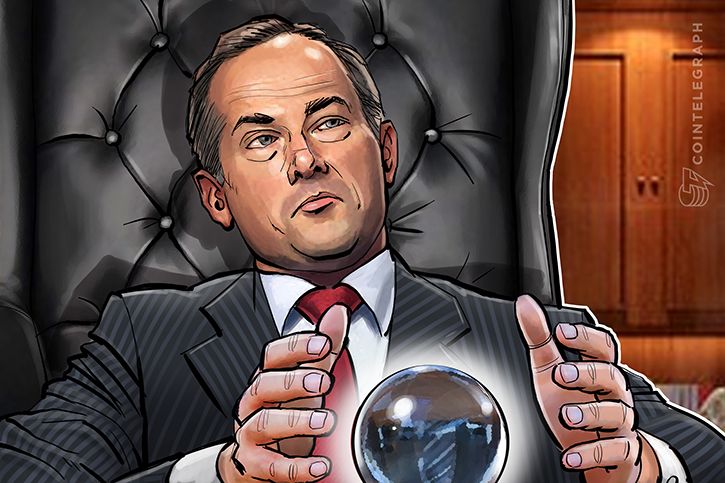
In its short lifespan of 10 years, Bitcoin has seen many obituaries. The latest one is by SocGen CEO, Frederic Oudea, who feels that Bitcoin has no future because of its anonymity.
Governments will clamp down
Fredric Oudea believes that the future of Bitcoin and other virtual currencies is dim, primarily because he expects governments and regulators to clamp down on them. The reason he gives is the anonymity involved in these transactions, which might facilitate illegal activities ranging from money laundering to terrorist financing.
Speaking to CNBC at the Web Summit conference in Portugal, Fredric Oudea said:
The benefit so far is it provides anonymity to the people who are making the transactions. I can't see a future of this when I see the attention paid by all governments and regulators on anti-money laundering, on anti-tax evasion, on anti-terrorism financing. The anonymity of the transaction is a problem I think which would put pressure on Bitcoin.
Anonymity or pseudonymity?
While there are virtual currencies whose primary use case is privacy and processing anonymous transactions, Oudea may be off the mark when he calls Bitcoin transactions anonymous. Bitcoin addresses are pseudonymous, i.e. Bitcoin addresses are not directly linked to real world identities.
All Bitcoin transactions are recorded in the Blockchain and are publicly visible. While precautions may be taken by criminal to obfuscate the flow of transactions, Oudea has erred in calling Bitcoin transactions anonymous.
Echoes Jamie Dimon
The views of Frederic Oudea echo those of Jamie Dimon, the CEO of JP Morgan, who called Bitcoin a fraud. The common underlying theme behind these views is that they believe that Bitcoin will fail not because the market will reject it, but because the Government will step in.
This by itself seems to be an admission of Bitcoin's strength and its ability to be adopted by the masses. The same people who criticise Bitcoin because of its unregulated and decentralized nature sing paeans about the Blockchain and its ability to improve efficiency and cut cost.
What about cash?
When entrenched market players attack Bitcoin on its pseudonymous nature, they conveniently ignore the fact that cash provides greater anonymity and can be transferred without leaving a trace. However, nobody is expecting governments and regulators to ban cash.
The attackers of Bitcoin also fail to realize that more and more governments, ranging from Japan to South Korea, are embracing virtual currencies. Regulations are evolving with the development of technology and banks' business models have to change. Otherwise, banks, not Bitcoin, might meet the fate of the dinosaurs.
Hi! I am a robot. I just upvoted you! I found similar content that readers might be interested in:
https://cointelegraph.com/news/industry-ceo-believes-bitcoins-anonymity-dooms-it-predicts-governments-will-ban
Downvoting a post can decrease pending rewards and make it less visible. Common reasons:
Submit